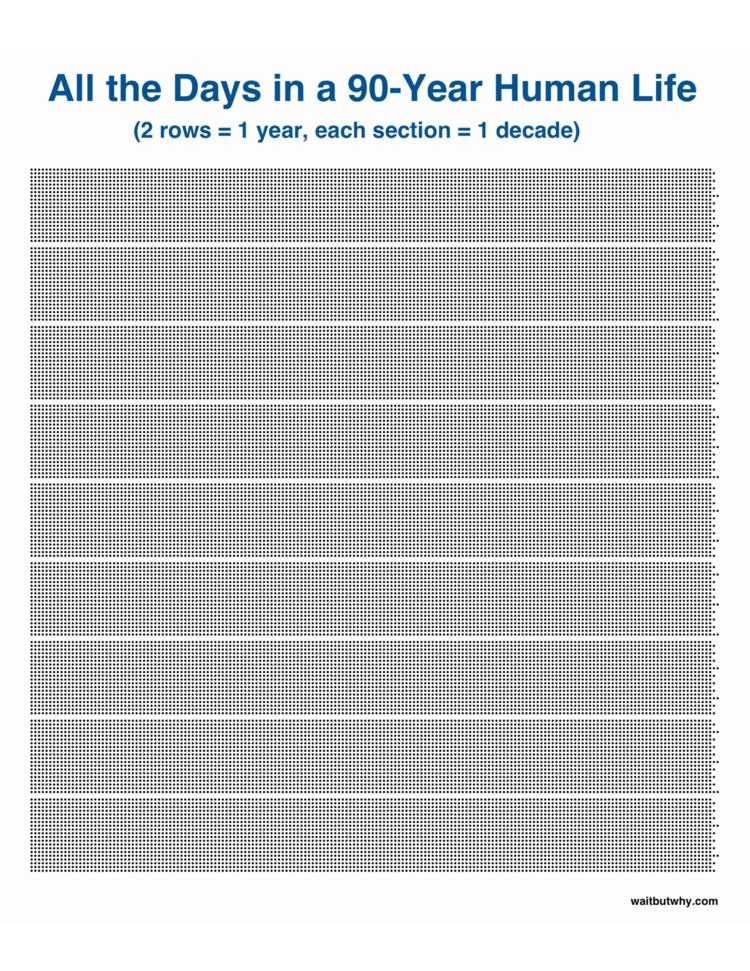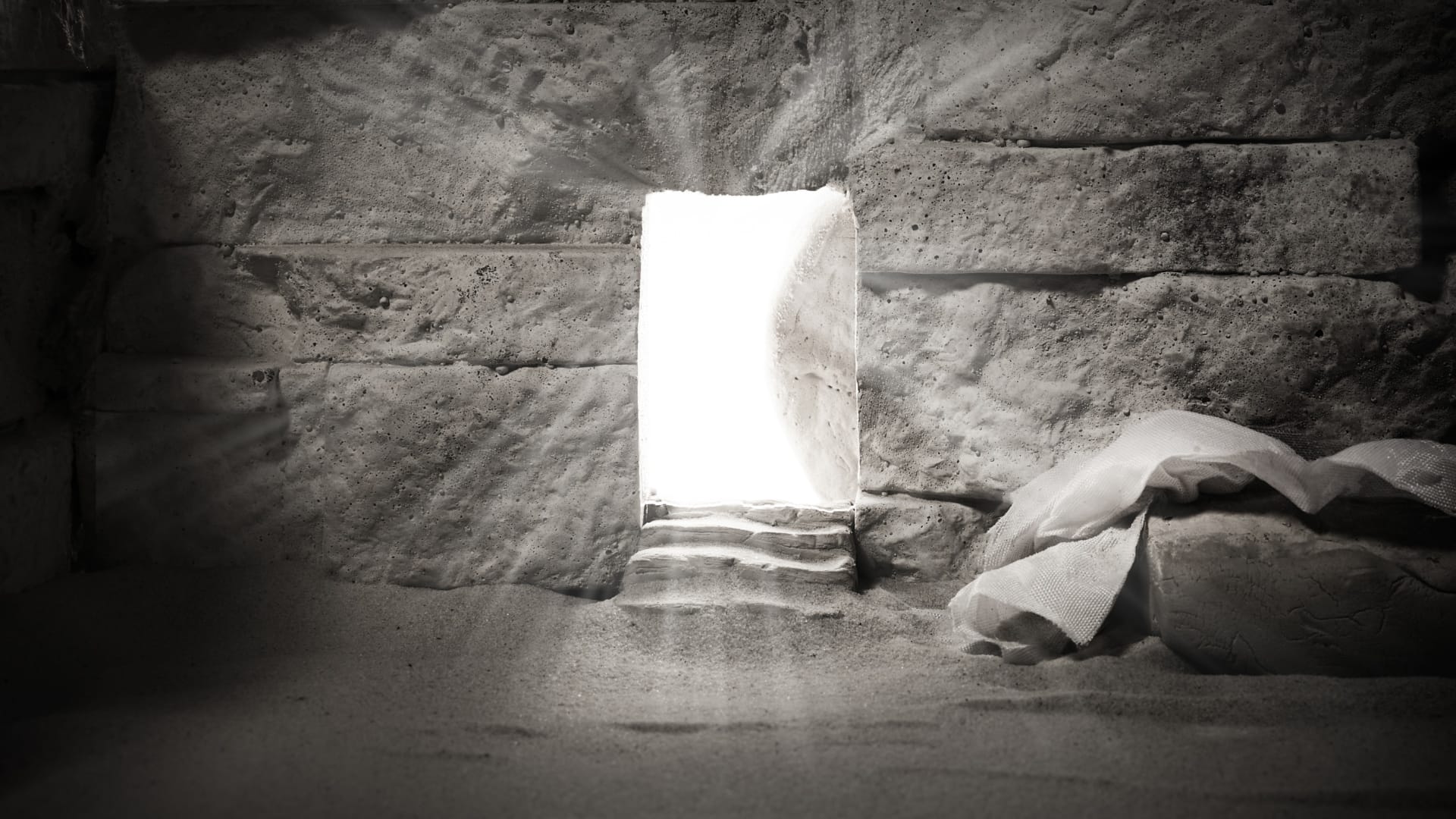Delight When Life Is Short and Hard (Psalm 90)

Big Idea: Because God is eternal and life is short, ask God to satisfy you with himself.
The movie City Slickers is a comedy about a man who’s 39 years old and in the middle of a midlife crisis. He’s friends with two other guys who are also experiencing amid-lifecrises, so they go on a cattle drive in Colorado. There’s a fascinating scene that goes something like this:
Curly: Do you know what the secret of life is? [points index finger skyward] This.
Mitch: Your finger?
Curly: One thing. Just one thing. You stick to that and the rest don’t mean [anything].
Mitch: But, what is the “one thing?”
Curly: [smiles and points his finger at Mitch] That’s what you have to find out.
As we begin 2016, I want to return to a psalm that I read a lot at the start of a New Year. It gives us one thing that we need to focus on, and I think it’s probably the best thing that we could focus on all year.
First, though, let’s set the stage.
The psalms are a collection of poems that formed Israel’s song book. The one we’re going to look at today is one of the oldest psalms going. According to the inscription, it was written by Moses. It was probably written around the time that Israel was preparing to enter the Promised Land after years of wandering in the desert. It was written in the wilderness during the 40 years that Israel was wandering in the dessert. Some two or three million people left Egypt; a whole generation of people had to die as they made that 40-year trek. There would have been constant funerals. As Spurgeon said, you could track the progress of the nation by the graves they left behind.
The psalm has a very simple structure that goes something like this:
- Verses 1 and 2 — God is eternal
- Verses 3 to 6 — In contrast, human life is short.
- Verses 7 to 12 — The reason that life is so short is the result of sin.
- Verses 13 to 17 — So ask God to satisfy us with his unfailing love.
So here’s the gist of the psalm that we need to understand before we get to the advice that he offers:
God is eternal, but our lives are short and hard.
Look at verses 1 and 2.
First: God is eternal. Verses 1 and 2 say:
Lord, you have been our dwelling place
in all generations.
Before the mountains were brought forth,
or ever you had formed the earth and the world,
from everlasting to everlasting you are God.
Think about this. Moses zooms out to consider time. A couple of years ago, the Art Gallery had an exhibit on King Tut and Egypt. I remember walking through the exhibit, marveling at the age of what I was seeing. Some of the exhibits are over 4,000 years old. I couldn’t help but think about Moses as he grew up in Egypt.
We think Moses is old, but back then Moses zooms out and says helps us see time from another perspective. Before Egypt, before there were any mountains, before there was even an earth, God was God. God has no beginning. He was God before the mountains were brought forth. He is God from everlasting to everlasting, with no beginning and no end. God exists from eternity and to eternity.
Not only that, but enormous periods of time are insignificant to God. Read verse 4:
For a thousand years in your sight
are but as yesterday when it is past,
or as a watch in the night.
This is amazing. A thousand years ago, the Normans hadn’t invaded England. Vikings were establishing small settlements in North America. A Chinese artisan invented ceramic movable type printing. It was still the middle ages. It was a vastly different time from now. Moses reminds us that a thousand years ago to God is like yesterday to us. In light of God’s eternality, a thousand years is like a day to him.
Moses wants us to grasp the eternality of God. Consider this as we begin 2016. The past year has gone fast for a lot of us. Nobody here knows what the next year is going to bring. But God stands outside of time, and a thousand years is insignificant to him. For people living in tents in Moses’ day, or for people living in homes today, God can be our dwelling place in all generations, because God never changes.
Second: Your life is short and hard. Moses next invites us to consider our lives. In contrast to God, who is eternal, Moses says two things about our lives. First, he says that our lives are short. Verses 5 and 6 say:
You sweep them away as with a flood; they are like a dream,
like grass that is renewed in the morning:
in the morning it flourishes and is renewed;
in the evening it fades and withers.
A human life – even the longest of human lives – is insignificantly brief. It’s like a watch in the night, a flood, a dream, or some grass that sprouts in the morning and dies at night. When I lived in North Bay one summer, they had these things called shadflies that would come out. They were everywhere. You couldn’t drive your car without turning your windshield wipers on. But these shadflies live for only one day. In parts of the world, they’re called one-day flies. The psalmist says that this is a picture of our lives. Our lives are brief. God is eternal, but we’re only here for a fleeting moment, and then we’re gone.
Not only that, but Moses says that our lives are hard as well. Read verses 7 to 11. The point that Moses makes is that our lives are hard, and they’re hard for a reason. Why? Because of God’s anger. Remember why so many were dying in the wilderness. They had rebelled against God after the spies had returned from Canaan, saying that they could not enter. God said, “I, the LORD, have spoken, surely this I will do to all this evil congregation who are gathered together against Me. In this wilderness they shall be destroyed, and there they will die” (Numbers 14:35). They were living and dying in tents in the wilderness as the consequence of sin. We’re not living in tents and dying in the wilderness, but life is still unbearably hard. We are still dealing with the results of human sin, and the mess it has made in this world. We are still dealing with God’s righteous anger against human rebellion, high treason against his reign.
So here’s an application, before we get to the crux of the advice that he offers as a response to this news that life is short and hard. Number your days. See what he writes in verses 10 to 12:
The years of our life are seventy,
or even by reason of strength eighty;
yet their span is but toil and trouble;
they are soon gone, and we fly away.
Who considers the power of your anger,
and your wrath according to the fear of you?
So teach us to number our days
that we may get a heart of wisdom.
Andy Stanley tells the story of a man who bought 1,300 marbles on his 50th birthday. He figured that, if he lives to be 75, he would have about a 1,300 Saturdays left. So every Saturday he goes and takes a marble out of that jar and throws it out. It’s a reminder to him that time is fleeting, and that he only has a short time left.
I don’t know what you need to do, but how will you remind yourself to number your limited days? To remember that your life is short? Steve Jobs once said:
Remembering that I’ll be dead soon is the most important tool I’ve ever encountered to help me make the big choices in life. Because almost everything—all external expectations, all pride, all fear of embarrassment or failure—these things just fall away in the face of death, leaving only what is truly important.
Take a look at this page.

Your whole life easily fits on a single piece of paper. The psalmist says that it’s not depressing to realize this. It actually leads to wisdom. Mike Wittmer says, “Death is the destiny of every person, and those who take that truth to heart are finally ready to live.” What he writes is sobering but important:
You are going to die. Take a moment to let that sink in. You are going to die. One morning the sun will rise and you won’t see it. Birds will greet the dawn and you won’t hear them. Friends and family will gather to celebrate your life, and after you’re buried they’ll return to the church for ham and scalloped potatoes. Soon your job and favorite chair and spot on the team will be filled by someone else. The rest of the world may pause to remember— it will give you a moment of silence if you were rich or well known— but then it will carry on as it did before you arrived. “There is no remembrance of men of old,” observed Solomon, “and even those who are yet to come will not be remembered by those who follow” (Ecclesiastes 1: 11).
You are going to die. What a crushing, desperate thought. But unless you swallow hard and embrace it, you are not prepared to live. (The Last Enemy)
In this psalm, he gives us two things we should do. One of them is to ask God to teach us to number our days. I hope you’ll do this today. But there’s one other thing he challenges us to do.
Here’s the advice that he offers:
Because God is eternal and life is short, ask God to satisfy you with himself.
Read verses 13 to 17:
Return, O LORD! How long?
Have pity on your servants!
Satisfy us in the morning with your steadfast love,
that we may rejoice and be glad all our days.
Make us glad for as many days as you have afflicted us,
and for as many years as we have seen evil.
Let your work be shown to your servants,
and your glorious power to their children.
Let the favor of the Lord our God be upon us,
and establish the work of our hands upon us;
yes, establish the work of our hands!
Here’s what he’s saying. There’s no changing the fact that our lives are short and hard. No matter what you do, you’re not going to overcome this reality. Time will go faster. You will get older and eventually die. There are only X possible reactions to this:
- Denial — Lets you enjoy life right now, but it’s based on a lie, and leaves you unprepared for ultimate reality.
- Depression — Faces the facts, but robs you of the enjoyment of life now.
- Distraction — Coping with the reality of life being short by distracting yourself with pleasure, money, and success. But this is only a distraction, and doesn’t deal with our deepest needs, and doesn’t survive death.
- Delight in God — This is the only thing that can give us the satisfaction and delight that we’re looking for, and that will survive death and continue forever.
This is one of the best prayers you could ever pray. Our hearts were meant to find their ultimate delight in God. I love how John Piper puts it: God is most glorified in us when we are most satisfied in him. Or, as C.S. Lewis put it, “God cannot give us a happiness and peace apart from Himself, because it is not there. There is no such thing.” You’ve just come through Christmas. Christmas has all this build-up. It promises that we will find happiness in gifts and family and food. And every year we’re a tiny bit disappointed as we come out of Christmas, because as good as these things are, they’re not enough to really satisfy us. So pray this year that you will find your heart’s deepest hungers met in God, because he is the only one who can truly satisfy.
I want you to think about this today. God doesn’t just want your duty. He wants your delight. He doesn’t just want your obedience. He wants your heart. He wants you to be eternally satisfied with him, to be glad in him. The psalmist teaches us that there is a happiness that can satisfy you at the deepest level, one that can coexist with the shortness and hardness of life, that can be yours now and last throughout eternity. It comes from not just serving God, but delighting in him. It will give you a joy and peace that can’t be taken away.
So that’s my prayer for you today. Because God is eternal and life is short, ask God to satisfy you with himself. Randy Alcorn writes:
Until Christ completely cures us and this world, our happiness will be punctuated by times of great sorrow. But that doesn’t mean we can’t be predominantly happy in Christ. Being happy as the norm rather than the exception is not wishful thinking. It’s based on solid facts: God secured our eternal happiness through a cross and an empty tomb. He is with us and in us right this moment. And he tells us to be happy in him. (Happiness)
So a few applications today:
I want you to evaluate yourself. How do you normally deal with the shortness and hardness of life? Remember that I said there are only four ways: denial, depression, distraction, or delight in God. If you tend to react through denial, depression, or distraction, then the first step is to admit and recognize that. They’re all dead ends. It begins with understanding that’s not what God intends for you at all.
Second: I want you to think about God and his desire for you today. I read this morning that the secret to happiness in life is relationships. Robert Waldinger, the director of a 75-year-old study on adult development, Waldinger has unprecedented access to data on true happiness and satisfaction. He concludes: “What are the lessons that come from the tens of thousands of pages of information that we’ve generated on these lives? Well, the lessons aren’t about wealth or fame or working harder and harder. The clearest message that we get from this 75-year study is this: Good relationships keep us happier and healthier. Period.” Think about this. And then think about the fact that relationship is exactly what God desires with you. It’s a relationship that cost him everything. Jesus gave his life to make this relationship possible. He wants a relationship with you, and it’s one that will bring you greater joy than anything else you can experience. Oh, and it will bring you into relationship with others as well.
Third: I want you too pray this with me this year — “Satisfy us in the morning with your unfailing love, so that we may sing for joy and be glad all our days.” Don’t settle for duty. Ask God for delight. Ask him to satisfy your soul. Let’s do that right now.





